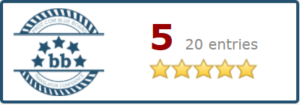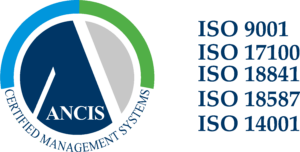“Intraview” 1: Project Managers Mery & Roberta
At the end of our 25th year of business, the Intrawelt Blog proudly presents its Intraview interview series. To mark the occasion, we would like to offer an insight into our world through a series of interviews with some of the team. We’ll start off with Project Managers Mery and Roberta, enjoy!
Harriet: Ok, let’s get started, can you tell me what your role is, how long you have been working at Intrawelt and what languages you work with?
Mery: Officially I’m a senior project manager but I also work as a revisor. I have been working at Intrawelt for three years. French and English are the languages I work with most often and which I have studied, but the language combinations of the projects that I manage are extremely varied.
Roberta: I’m a project manager (officially) but, like Mery, I also do revisions; I’ve been working at Intrawelt for just over a year. My main working languages are English and French, sometimes I also work with Portuguese, but I only studied it for a year.
H: Great, so how did you get into this field of work? And more specifically, how did you end up working for Intrawelt?
R: I’ve always been passionate languages about and translation, and that’s why I decided to study Foreign Languages and Literature at university and then to attend the School of Translation and Interpreting in Forlì. This education, and, most of all, my MA in Specialised Translation has allowed me to enter the field of translation. The same can be said for Intrawelt: I got the job thanks to my studies, and in particular thanks to an internship that I did as part of my degree, which before long turned into a permanent position.
M: Since high school (I went to a school that specialised in languages) I dreamt of a career in languages, my MA from the School of Translation and Interpreting of Forlì allowed me to work in the field of bilingual publishing, first with fixed-term contracts and projects for various French publishers, then as a freelance in Italy, where I also worked as a freelance translator. I signed up to the Intrawelt database as a translator and after about a year I was contacted by Alessandro for a job interview. A member of the internal team was leaving and I was to be her replacement. I did a translation test and a trial period, during which I mostly did revision-based work. Then I moved on to project management.
H: Do you have any advice for people hoping to become a translator or project manager? Education seems to be key here.
M: Education is fundamental, but it’s not enough.
R: Exactly, of course attending a good university for interpreting/translation is essential, I recommend Forlì or Trieste which are the most prestigious schools in Italy and offer theoretical as well as practical training (which is extremely rare for Italian universities!). Education alone is not enough though – having a degree in translation won’t automatically secure you a job as a translator/PM – you also need skills in IT, languages and much more, and you need to be organised.
M: As well as a good knowledge of the foreign languages that you work with (or excellent I would say, in the case of project manager/revisor) together with an excellent command of your mother tongue, you also need to have good IT skills. You need to be organised, flexible, tenacious, have good problem solving skills, be a team player and be extremely practical.
H: I’m sure the extraordinary skills you have mentioned help enormously, but how do you manage your workload?
M: You learn how to do it, little by little. One thing which is indispensible in a project manager role is learning how to work in fast paced conditions. When work orders overlap, timeframes are tight and resources are stretched, above all you need to keep your cool and try to understand what should be given priority. There are times when everybody needs you and you have to try to please everyone and reach the end of the day in one piece. In highly stressful conditions, you can get anxious and stressed which makes everything all the more difficult. You have to train yourself to stay calm, but this is easier said than done. But you get there, bit by bit.
R: I agree, I’m still learning! With time you develop the organisational skills needed to manage several projects at the same time and to a tight deadline. In general, we always try to give priority to the most urgent work orders, then (I agree with Mery) if the jobs overlap, as is often the case, holding your nerve and without panicking you have to find a way of getting things done in the best possible way. To do this you have to be able to multi-task and above all to stay calm.
H: Yes, I imagine it must be very difficult, but from what I’ve seen you always seem to have everything under control!
M: Being a woman helps a lot with multi-tasking!
R: I agree!
H: Yes, and here at Intrawelt there are lots of us women! Based on what you’ve said, what are the best and worst aspects of your job (if there are any)?
R: Negative sides: often being in highly stressful situations, but mostly the sedentary nature of our work. At first it was very hard to get used to sitting in front of a computer for 8-9 hours a day! Positive sides: it’s not a repetitive job, each project/text is different, every day you learn new things, you get to put your foreign languages to good use, you often have to liaise with others to find the best solutions and you also develop excellent organisational skills. It certainly keeps your brain trained!
M: Yes, being sedentary is perhaps the worst aspect of this job, as I fear is the case for anyone who works full time in an office. As a mother, and not being able to go home at lunch time in order to optimize my time, any full-time job would be just as demanding. in this field of work, it’s difficult to imagine being able to work as a project manager part-time because you have direct contact with customers and suppliers who work full time and who need us (or could need us) any time of day.
H: Yes, it would be a challenge; do you manage to find a good work-life balance?
M: Absolutely not. But weekends are sacred and not working on Saturday and Sunday allows me to switch off and dedicate some time to myself and my family. When I was self-employed I used to have my mind on work during weekends too; sometimes I even had to work through the night!
R: During the week I try to make the most of every second of free time I have, I’m never at home but at least I manage to exercise, go out, go to the cinema, etc. Obviously weekends are sacred for me too!
H: Yes, having weekends free is a positive aspect of working in an office! And to finish, in two sentences can you tell me: what has been your biggest challenge this year? And what are your hopes for 2017?
M: For me every day is a challenge. Although, even the most complicated projects that make you break out in a sweat are soon forgotten.
R: My biggest challenge was definitely writing my dissertation and graduating while working for Intrawelt at the same time.
M: There’s always a new challenge just around the corner and reaching the end of the day having ticked everything off the to do list gives the greatest satisfaction of all. As a mother and a wife, I would say that the biggest challenge is reconciling work and family life. I wish for lots of energy and good health in 2017, so I can continue to overcome everyday challenges, in the office and at home.
R: I also hope for energy and good health in 2017, you really need it for this job! I hope to be able to take a few extra days holiday and visit lots of new places.
H: I hope you get all of these things too! You both deserve to achieve all of your goals! Thank you very much for the time that you’ve dedicated to this interview, I know that time is precious, especially after learning how much you have to do every day! I wish you a very happy 2017!
R: Thank you! You too!
M: Thanks Harriet, it’s been a pleasure! Thank you for giving us the opportunity to express ourselves and for listening!






Leave a Reply
Want to join the discussion?Feel free to contribute!